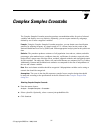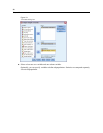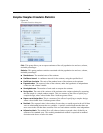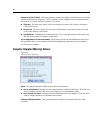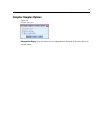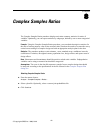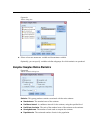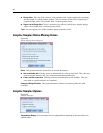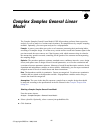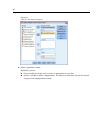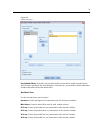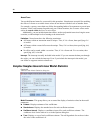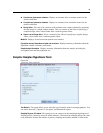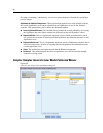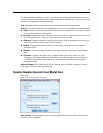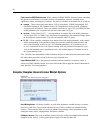
Chapter
9
Complex Samples General Linear
Model
The Complex Samples General Linear Model (CSGLM) procedure performs linear regression
analysis, as well as analysis of variance and covariance, for samples drawn by complex sampling
methods. Optionally, you can r equest analyses for a subpopulation.
Example. A grocery store chain surveyed a set of customers concerning their purchasing habits,
according to a complex design. Given the survey results and how much each customer spent in the
previous month, the store wants to see if the frequency with which customers shop is related to
the amount they spend in a month, controlling for the gender of the customer and incorporating
the sampling design.
Statistics. The procedure produces estimates, standard errors, confidence intervals, t tests, design
effects, and square roots of design effects for model p arameters, as well as the correlations and
covariances between parameter estimates. Measures of model fit and descriptive statistics for the
dependent and independent variables are also available. Additionally, you can request estimated
marginal means for levels of model factors and factor interactions.
Data. The dependent variable is quantitative. Factors are categorical. Covariates are quantitative
variables that are related to the dependent variable. Subpopulation variables can be string or
numeric but should be categorical.
Assumptions. The cases in the data file represent a sample from a complex design that should
be analyzed according to the specifications in the file selected in the Complex Samples Plan
dialog box.
Obtaining a Complex Samples General Linear Mode l
From the menus choose:
Analyze > Complex Samples > General L ine ar Model...
E
Select a plan file. Optionally, select a custom joint probabilities file.
E Click Continue.
© Copyright SPSS Inc. 1989, 2010
45



